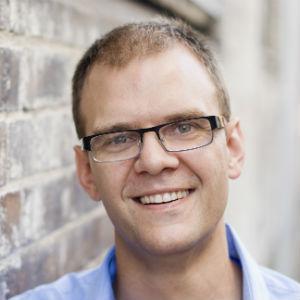Ralph Grayden is an ex-lawyer who, since 2003, has made a substantially less well remunerated living as a journalist and copywriter. He was born in regional Australia, spent four years in London, and now has moved back to Sydney.
Although by now you must have noticed some similarities between his own life and his novel, he assures you that his own story is much more sordid and that Page Three is a work of fiction.
Page Three: A very London story by Ralph Grayden recently cracked number 7 on the Amazon bestsellers list for comic fiction and number 11 on Apple’s iBooks literature and fiction chart. Read more about Ralph at his Goodreads blog.
What did you want to be when you grew up?
When I was little I couldn’t understand how one job could possibly occupy someone all the time, so I wanted to be about 8 different things: Archaeologist, fireman, inventor, and many more, but writer was always in the mix.
When did you know you would write for theatre?
I think it dawned on me in my mid twenties, working as a solicitor in a big commercial law firm. I’d regularly be made to work until the early hours of the morning and I thought I might be happier doing something I enjoyed if I had to put in those hours. But I didn’t yet know what that was. It took a while to find out. So I quit and actually worked as a builders labourer and in a bottle shop for a while, tried suburban law, and worked in a bookshop before ending up in legal publishing. That gave me the opportunity to become self employed, and once I could arrange my working days the way I wanted I realised I had enough time to actually write my own stuff.
How would you describe your writing to a complete stranger?
I write the kind of stuff I would like to read myself. That means I try to entertain and sneak in some laughs wherever possible.
What’s your background – are there studies that prepare you for this?
I did an Arts/Law degree and became a solicitor but I don’t think that was necessary for becoming a writer, although it does give you discipline, and the law teaches you the importance of every word you use. I also studied screenwriting as part of a Graduate Diploma of Writing at UTS and did a subject in novel writing at City University in London. It was good in terms of providing an audience to trial my writing on. However, sitting at your desk and writing is the best learning ground.
What’s the first thing career related you usually do each day?
Check my email.
Can you describe an “average” working day for you?
I work as an advertising copywriter by day. Because I’m self employed it gives me some degree of flexibility and I can fit my other writing around it. I’m not someone who writes every day, I’m more an all or nothing kind of writer which means I have intense periods of writing and periods of down time.
What’s the one thing – piece of equipment, toy, security-blanket – that you can’t write without?
My wife, to correct my work.
What gets you fired up?
What doesn’t get me fired up? I think if you are going to be a writer you have to feel like you have something to say. I’ve got an opinion on pretty much everything…
Who in the industry most inspires you?
One of the first books that connected with me was Huckleberry Finn, which we were made to read in year 9 at school. It was one of the first times I realised that good writing could also be funny so Mark Twain is still one of my favourites. In more recent times its hard to go past Nick Hornby. His first few books really capture the way an obsessive man thinks. I also was very inspired by David Nicholls. His novel Starter for Ten was hilarious. I also really like satire like PJ O’Rourke or Clive James.
What in the industry do you despair about?
How hard it is to get published in Australia. It’s a very small market and that means Australian publishers tend to be very conservative. That also creates a sameness about Australian literature and you don’t get a wide range of writing styles.
What is the best thing about your job?
Working for myself.
What’s the worst?
Solitude, angst and the sleepless nights over commas and full-stops.
What are the top three skills you need in this industry?
Thick skin, perseverance and self belief.
What advice would you give an emerging playwright writer looking to break into the field?
Don’t take no for an answer, and believe in yourself. The Internet has changed publishing forever, it’s a global marketplace now and there are so many niches to occupy.
When do you know you’ve made it?
I’ll let you know if it ever happens.





